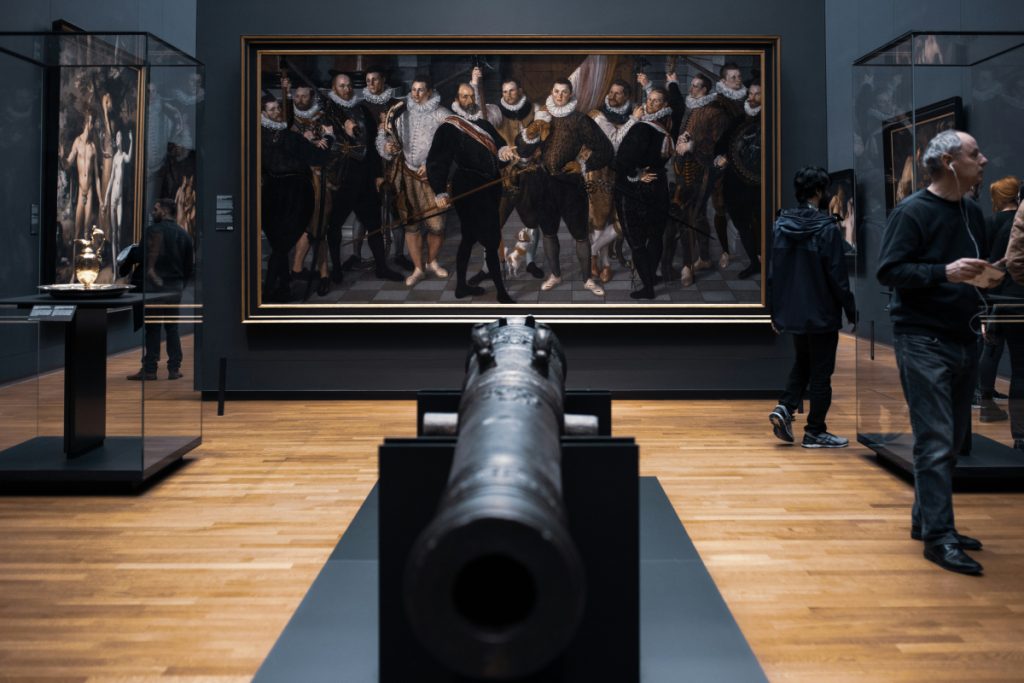Decolonisation, according to sociologist Tamara Soukotta, is actually the dismantling of the university, which is a colonial institute. Or, more precisely put: decolonisation is getting into the cracks the university is already showing, after which the institute will collapse of its own accord.
“The contradiction between science and wisdom is such a crack”, says Soukotta. “This room here, where we’re talking to each other about decolonisation, is a crack. I am a crack.”
Soukotta was hired by VU Amsterdam’s Faculty of Social Sciences to teach lectures on decolonisation. She’s on a temporary contract, but doesn’t think it will be extended. “To offer me a permanent contract would mean suicide to the university”, she says. “Decolonisation is a fashionable term in today’s academic world, but once you really start acting upon it, you meet with a lot of resistance.”
“If a white man says what I say, he’s admired for it”, says Soukotta. “I, as a woman of colour, am constantly told I’m too emotional.”
She speaks at a gathering on decolonisation at the VU Amsterdam debating centre 3D, organised by the decolonisation committee of student union SRVU. Before the talks start, cultural anthropology student Rebekah Lamb performs a cleansing ritual on the Campus Square outside. She burns sage in a bowl, shrouding all participants in its smoke.
Different way of teaching
About 25 people are present. Lecturer of European, colonial and postcolonial history Wim Manuhutu kicks things off with a short lecture on historiography, an “instrument of imperialism.” History is never just a description, he explains: “There’s always a goal, for instance converting or enslaving a people.” The histories of the indigenous peoples of colonised countries are always marginalised as mythology or folklore.
To this day, indigenous voices are silenced according to Manuhutu. For example, Haiti is currently receiving a lot of media attention, as criminal gangs have seized power there, “but it’s necessary to know where all of this is coming from.”
Decolonisation of his field also requires a different way of teaching, Manuhutu feels. For one thing by having students participate actively instead of one-sidedly bombarding them with your knowledge. “It’s often much more satisfying to turn the lecture hall on its head”, says Manuhutu.
Whereas Manuhutu keeps things fairly conventional with his call to do away with eurocentrism, to study indigenous and non-western sources, and to give students a more active role, things heat up considerably with the other two speakers: Chautuileo Tranamil and Tamara Soukotta.
Primitive and backward
Chilean-Dutch Tranamil is known for, amongst other things, founding Aralez, a “pan-decolonial network for decolonisation, reparation and cosmovision”. She’s also affiliated to the political party BIJ1. She seems to be arguing for a general focus on indigenous sources, on the “community” as a source – according to her, this is where the best knowledge comes from. “On the way to the hospital I got to talking to the taxi driver, which teaches me so much”, she ways.
According to Tranamil and Soukotta, decolonisation is a matter of “unlearning”. For example, that everything is looked at from the western perspective, the concept of “western”, the concept of “modernity”, the concept of “indigenous”. You have to learn that what you see in the folk museum isn’t just a skull, but the skull of someone’s ancestors, something to respect. Museums are full of objects that they think are intended to show how primitive and backward non-western peoples are.
‘To offer me a permanent contract would mean suicide to the university’
Rebekah Lamb, daughter to a Native American mother, gives an evocative example: “Sometimes when you’re in a museum, you’ll see a Native American drum, but to Native Americans that’s not a drum but our collective heartbeat.”
This is followed by stories of colonial crimes. The kidnapping and raping of indigenous women, the removing of children from their parents, the violence, the cultural genocides. “But I refuse to be furious about this”, says Tranamil. “That’s not something I want to pass on to my children, I don’t want them to view the world this way. Decolonisation is a process of healing, a joyous journey. There will be pain, it’s also suffering, but that’s part of healing.”
Indigenous Dutch people
Anything that stems from colonialism must be unlearned, says Soukotta. She appears to be referring to anything stemming from the Golden Age and later. That’s why the university must be torn down as well. In its place, something else must be built.
Those present, mostly students, listen quietly. They’re probably trying, like me, to imagine what it would be like to unlearn everything we’ve learnt since the 17th century and start with a clean slate. Then, Soukotta says a few words of comfort: The Dutch are also an indigenous people, she says. They also have ancestors connecting them to the land. They have to reestablish their contact with those ancestors, with the ancestors of the Netherlands before colonialism.
